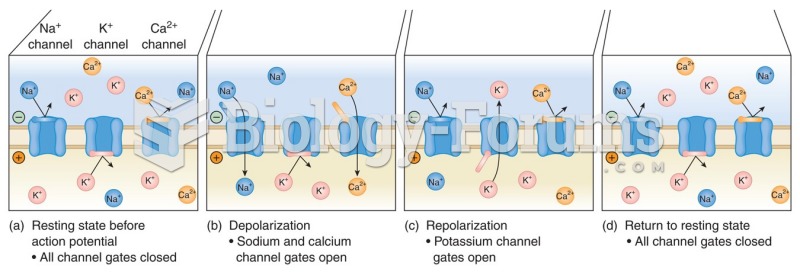|
|
|
Earwax has antimicrobial properties that reduce the viability of bacteria and fungus in the human ear.
Blood is approximately twice as thick as water because of the cells and other components found in it.
Your chance of developing a kidney stone is 1 in 10. In recent years, approximately 3.7 million people in the United States were diagnosed with a kidney disease.
In most cases, kidneys can recover from almost complete loss of function, such as in acute kidney (renal) failure.
Dogs have been used in studies to detect various cancers in human subjects. They have been trained to sniff breath samples from humans that were collected by having them breathe into special tubes. These people included 55 lung cancer patients, 31 breast cancer patients, and 83 cancer-free patients. The dogs detected 54 of the 55 lung cancer patients as having cancer, detected 28 of the 31 breast cancer patients, and gave only three false-positive results (detecting cancer in people who didn't have it).







